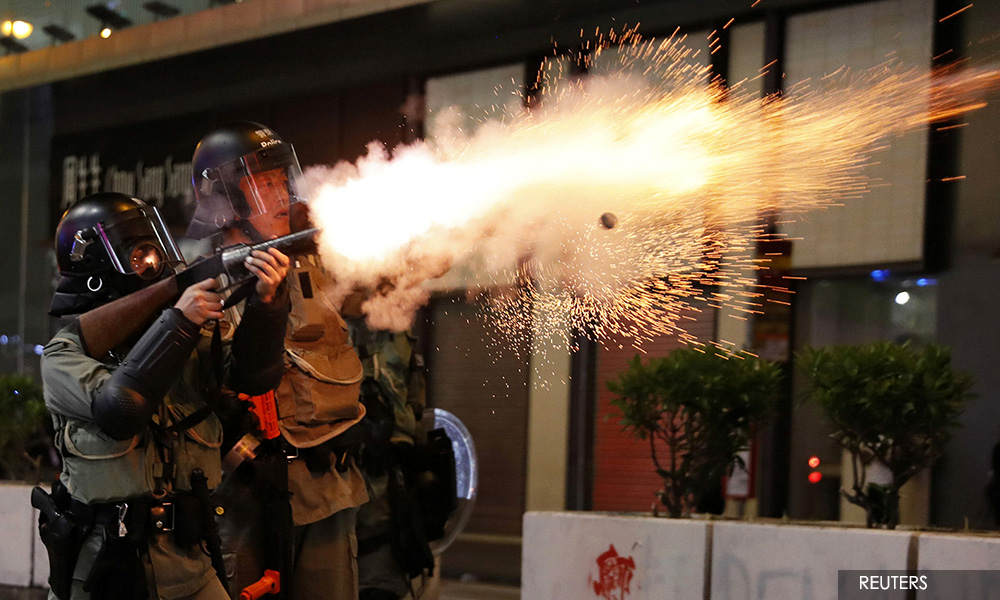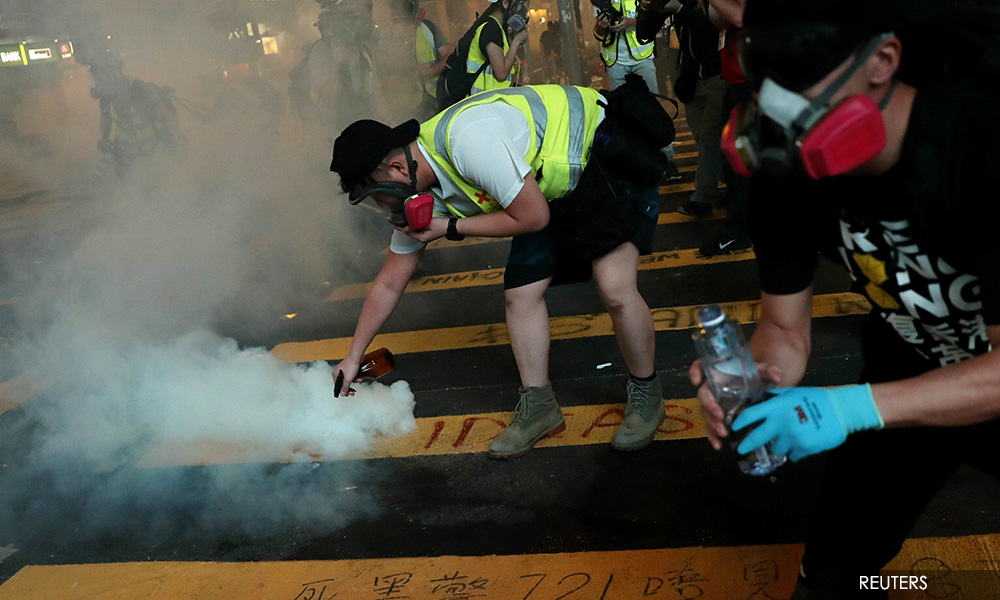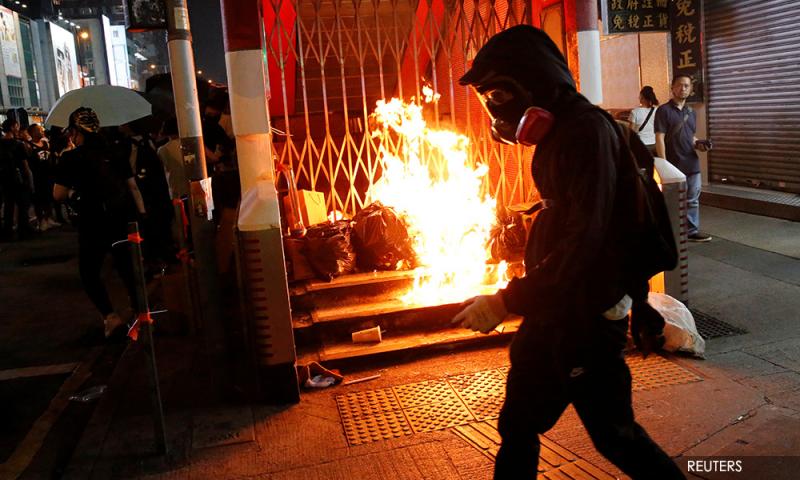Downtown HK becomes battleground as night falls
Hong Kong police fired tear gas into a park to break up thousands of anti-government protesters who fled to the Central business district, setting fire to street barricades and metro stations in some of the worst violence in months of unrest.
Central, its streets lined with banks and top-end jewellery and fashion stores, became a battlefield after night fell, with running clashes between police and black-clad, masked activists.
Protesters are angry at perceived Chinese meddling with Hong Kong's freedoms, including its legal system, since the city returned from British to Chinese rule in 1997. China denies the charge.
As peaceful family protesters finished making origami paper cranes in Chater Garden, a cricket pitch in colonial days, activists began throwing petrol bombs on the streets, in front of the headquarters of HSBC and the Hong Kong base for the Bank of China.
Police again responded with tear gas on what was the 22nd straight weekend of protests. Activists later set fire to an entrance of the MTR metro's Central station, and smashed glass walls with bricks at another.
"Some masked rioters vandalised shops and committed arson," police said in a statement.

Activists blocked streets and set fire to plastic barricades, the acrid smell mixing with the tear gas, and ripped at least two telephone booths out of the ground.
The MTR has often been a target of protesters' anger as it closes down services to stop people gathering. Central station was closed on Saturday evening.
TV footage showed the smashed glass windows of China's local branch of the Xinhua news agency.
Protesters also gathered across the harbour in the hotel and shopping district of Tsim She Tsui, at the tip of the Kowloon peninsula, with scores of passengers on the Star Ferry chanting "Hong Kong people resist". Hundreds gathered outside the Kowloon mosque on Nathan Road shouting "fight for freedom".
The early use of tear gas in Victoria Park was an attempt to nip in the bud a rally billed as an "emergency call" for autonomy for Hong Kong that was promised its freedoms when it returned to Chinese rule under a "one country, two systems" formula.
Activists, many wearing now-banned face masks, pulled up metal fencing and used a football goal to build barricades near the park, a traditional venue for rallies and vigils for decades, their actions masked by others holding umbrellas.
"Hong Kong people, resist," they shouted. "Revolution of our time."
Many sang the British and US national anthems, waving multi-national flags and a few called for independence, a red line for Communist Party leaders in Beijing who have vowed to "crush the bones" of anyone pursuing such a move.
The protesters took off in all directions, many throwing bricks as they charged towards Central, building makeshift street barricades. Police fired water cannon and more tear gas in the Wan Chai bar district.
Activists have attacked police with petrol bombs, set street fires and trashed government buildings and businesses seen as pro-Beijing over recent weeks. One policeman was slashed in the neck with a knife last month.

Police have responded with tear gas, pepper spray, water cannon, rubber bullets and occasional live rounds. Several people have been wounded.
Saturday's rally in the park was not given official police permission, as is required, but that has not stopped people gathering in the past. Face masks were banned under a resuscitated colonial-era emergency law.
"It does not make sense (for this assembly to be unauthorised)," said one protester, 55, who only gave her name as Lulu. "This is our human right... The global support is very important. We are not only in Hong Kong. The whole world supports Hong Kong."
Simon Tse, 84, came with his two daughters.
"I haven't joined a protest on the street since the Oct. 1 march which became quite violent," he told Reuters. "But today I am joining because we are calling for international support, urging help from 15 countries. This is the last chance for Hong Kong people."
Government data on Thursday confirmed that Hong Kong slid into recession in the third quarter for the first time since the global financial crisis of 2008. - Reuters
RM12.50 / month
- Unlimited access to award-winning journalism
- Comment and share your opinions on all our articles
- Gift interesting stories to your friends
- Tax deductable

 Reuters
Reuters